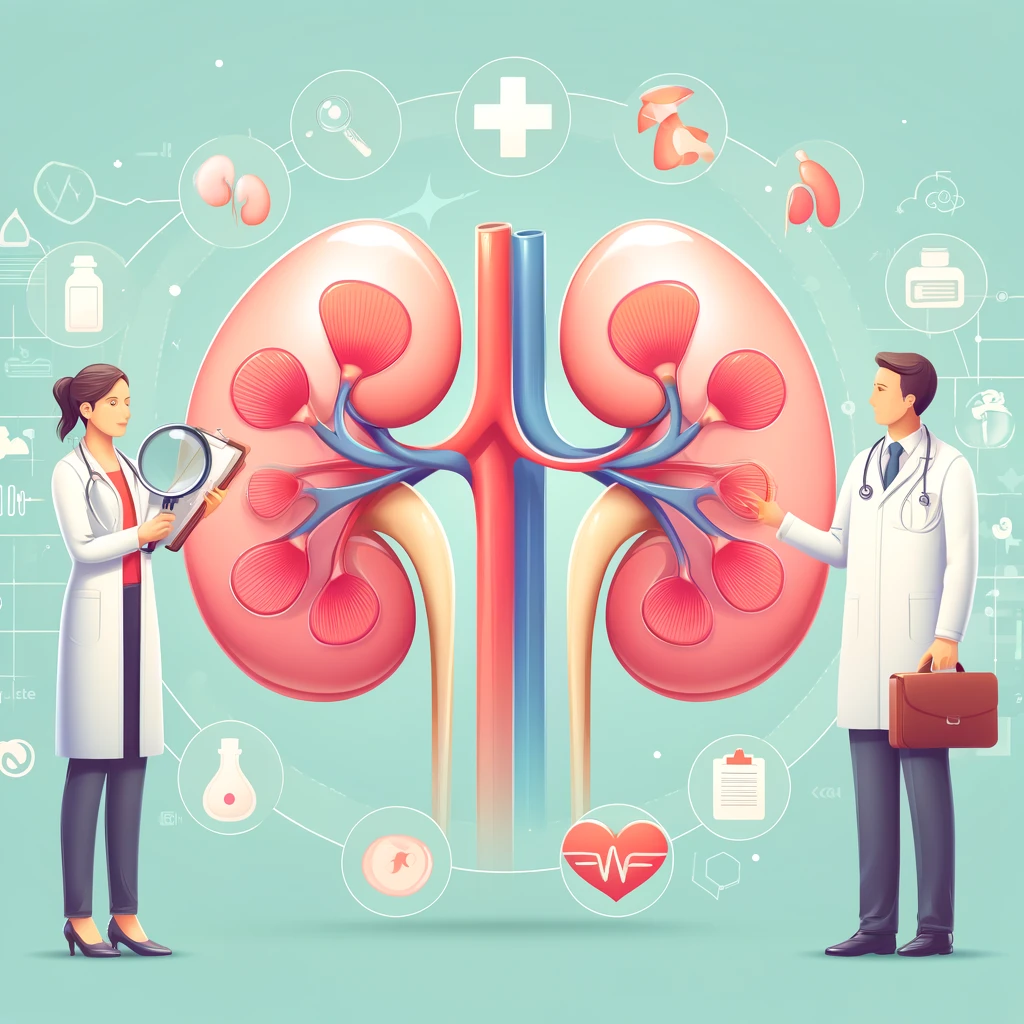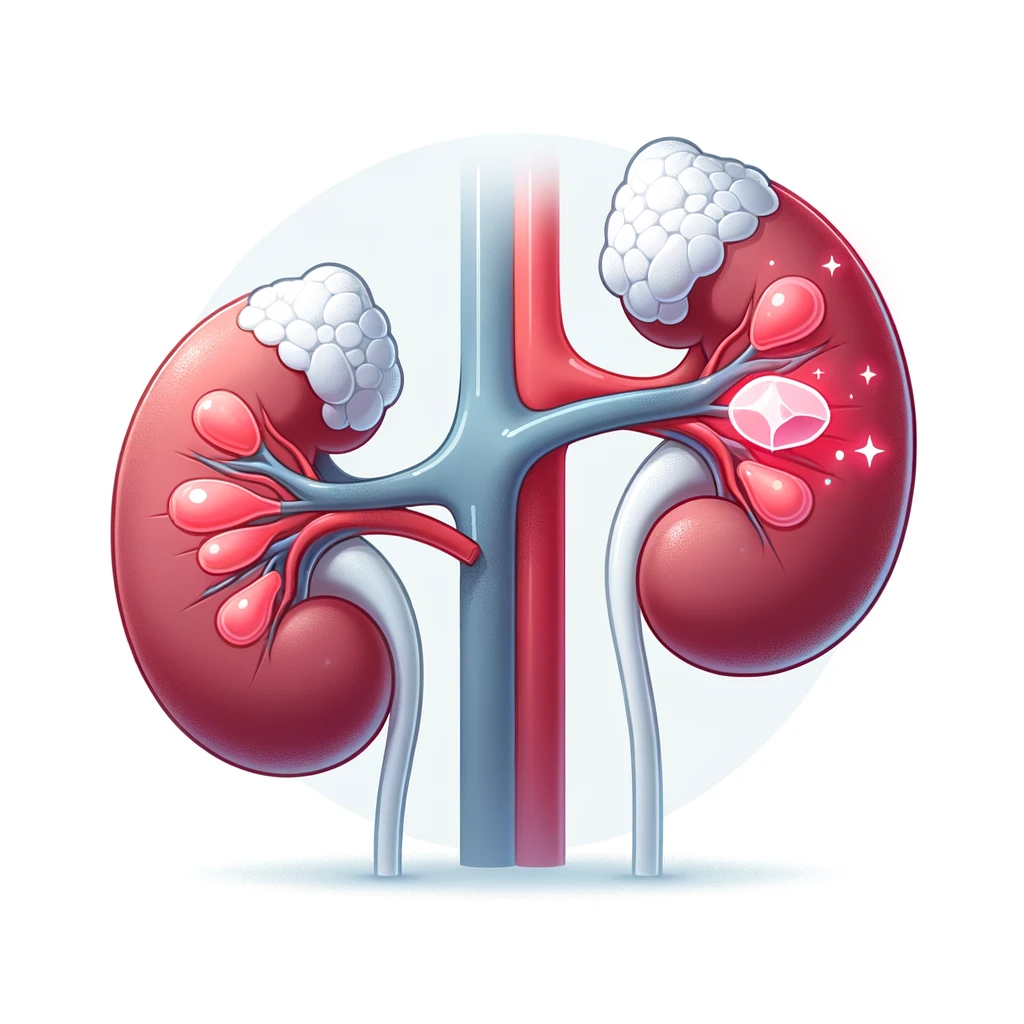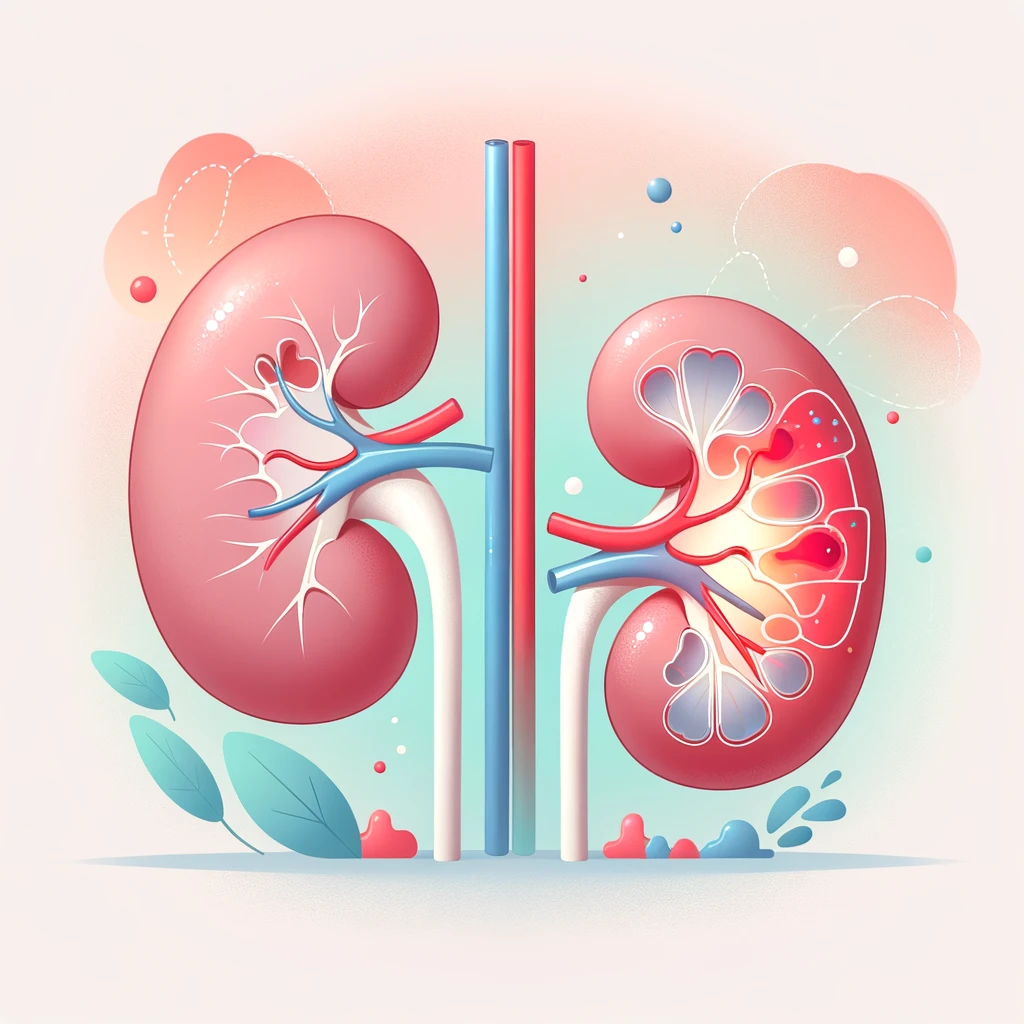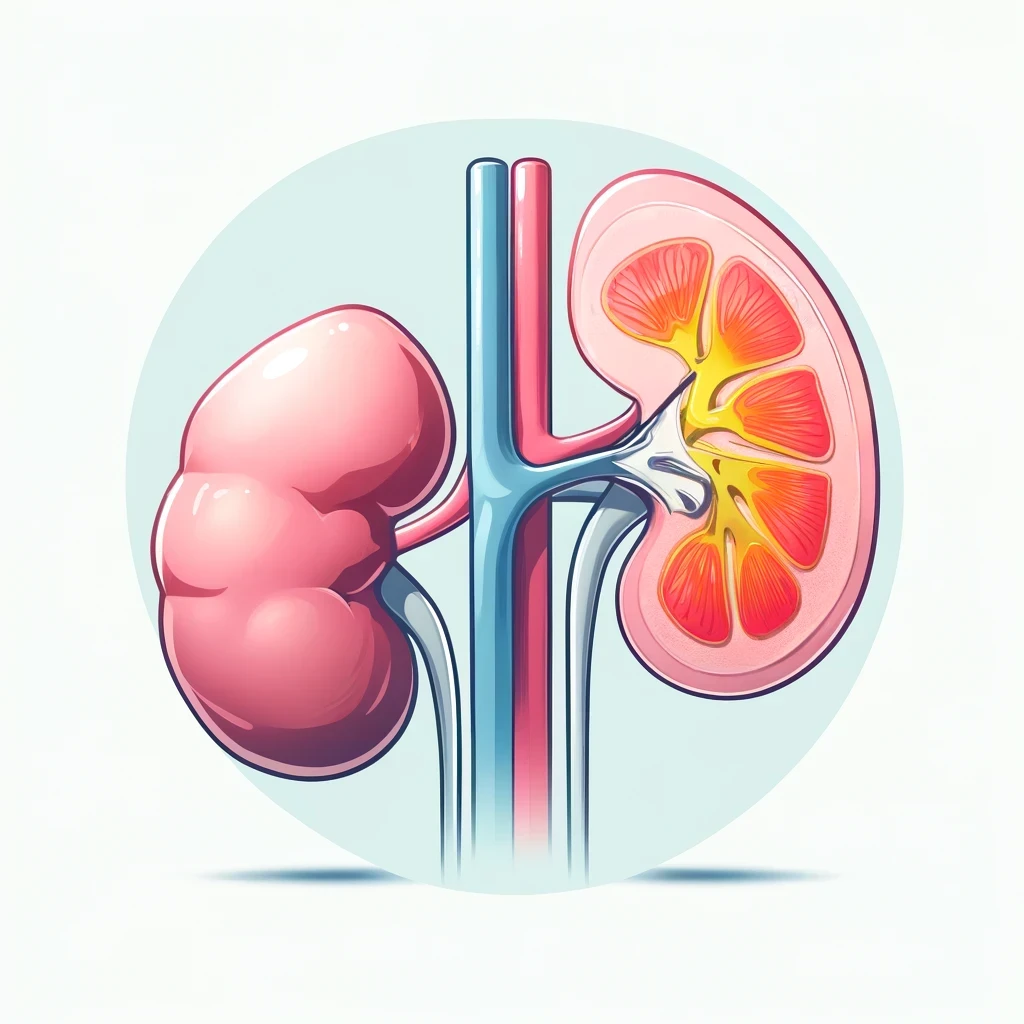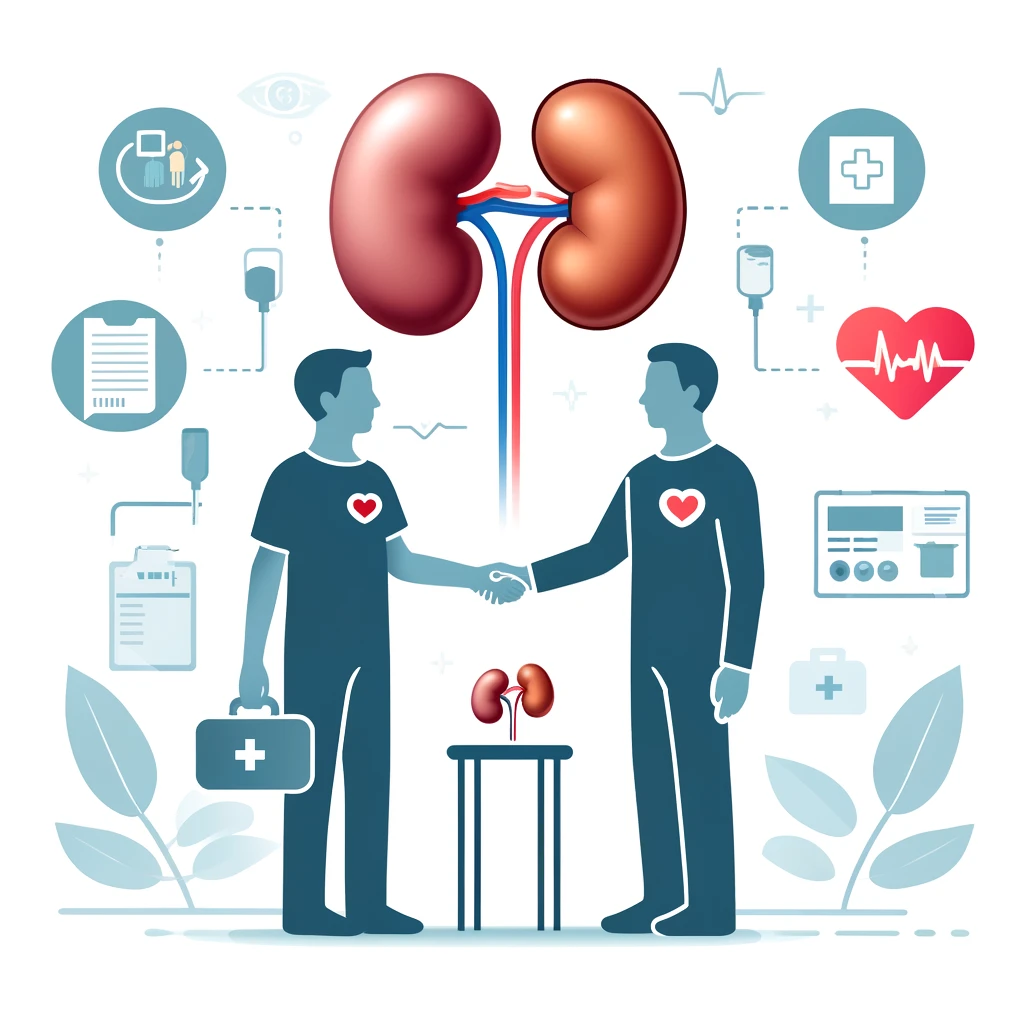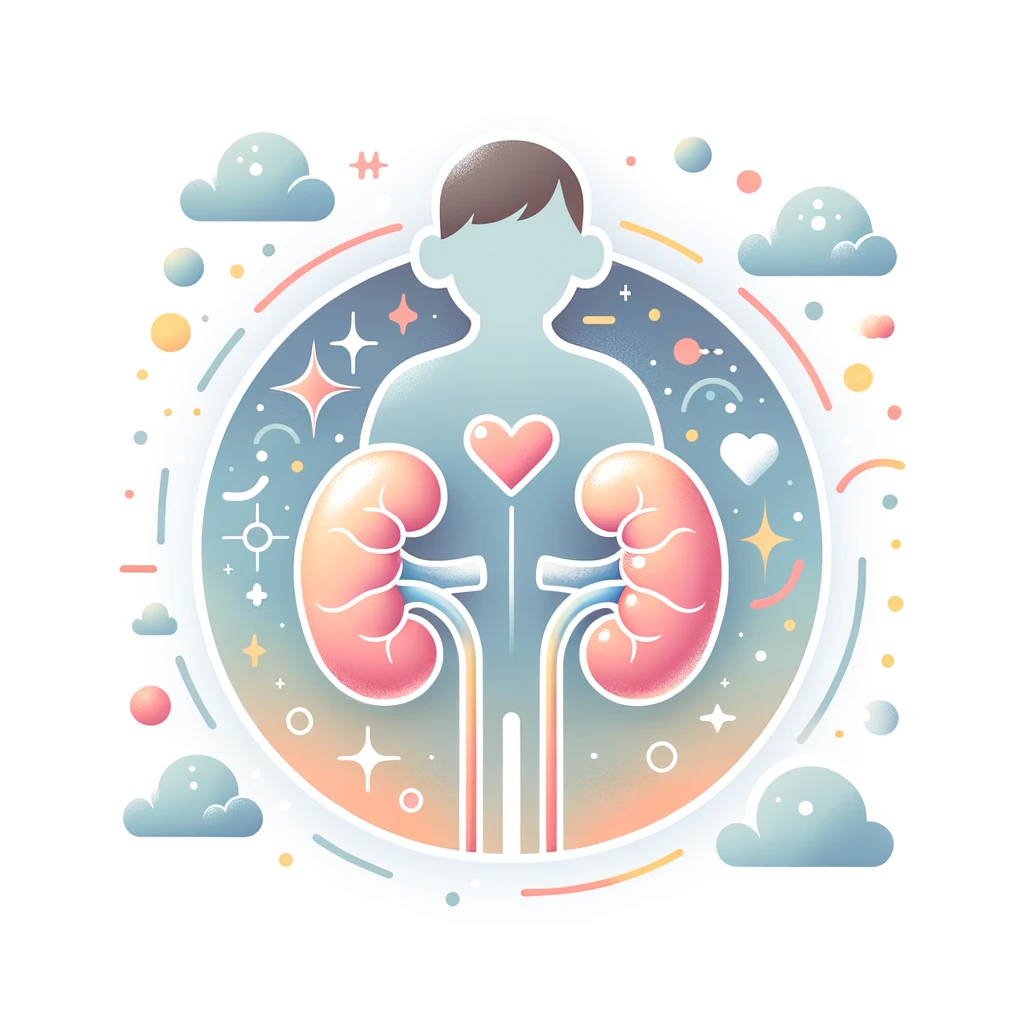2. How Do Kidneys Look And Where Are They Present?
Kidneys are bean-shaped reddish-brown organ roughly the size of a closed fist, about 10-12 cm long, 5-6cm wide and 2.5-3cm thick. Kidneys are situated just below the rib cage, on either side of your vertebral column. They lie behind the peritoneum, deep in the abdominal cavity of your body. Each kidney weighs about 150-160 grams in adults. The kidney of males is 150gm, and of females is 135gm.
3. What Are Kidneys Made Up Of?
The renal cortex, renal medulla, and renal pelvis are the three significant parts of your kidney. The nephron, found in both the renal cortex and the renal medulla, is the most important functional unit of the kidney. The study of the kidney is termed nephrology.
The kidney is divided into three main parts:
An outer renal cortex
Inner renal medulla
And renal pelvis
4. What Are The Significant Functions Of Kidneys?
The most vital function of the kidney is to filter the blood and remove the toxins in the form of nitrogenous waste, referred to as urine. Urine enters your body through your ureters, travels to your bladder, and exits through your urethra. Through your veins, the filtered blood returns to your bloodstream.
5. Other Essential Functions That Your Kidneys Do:
Regulate ionic composition Kidneys have direct control over how many ions and how much water a person excretes from the body; in this way, kidneys regulate osmolarity.
Maintenance of blood plasma volumeKidneys are so important that they influence your blood pressure. The kidneys regulate blood plasma volume by controlling how much water the body excretes. This directly impacts total blood volume, affecting your blood pressure.
Regulation of plasma hydrogen ion composition (pH)Kidneys work in association with your lungs to regulate pH. They play an important role because they control the amount of bicarbonate excreted or retained. The kidneys regulate blood pH primarily by eliminating hydrogen ions and reabsorbing bicarbonate ions as needed.
6. What Happens If Kidneys Not Working Properly?
If kidneys are damaged or function improperly, extra fluid and waste return to your bloodstream rather than leaving your body as urine and can cause fluid and toxic waste to accumulate in your body, affecting organs such as your brain, heart, lungs, and bones.
7. What Causes Kidney Damage?
The Most Common Causes Are:
High blood sugar and cholesterol levels, along with high blood pressure
Medication – Frequently using painkill
Damage occurs by physical injury or injury related to sporting activity.
CKD (= Chronic Kidney Disease)
Acute kidney disease
Some chronic infections:
HIV
Hepatitis C virus
Bacterial and Viral infections
Other infections
8. Chronic Kidney Disease (CKD)
Chronic kidney disease is the most common type, affecting 10-13% of the global population. It is irreversible, progressive, and has slow damage to your kidney functions associated with an increased risk of cardiovascular disease. Patients with this condition are usually asymptomatic, with typical kidney damage complications appearing only in the later stages, and they are always at a higher risk of complications and morbidity.
9. Any Known Cure Of CKD?
CKD can’t be cured, which states that kidney damage is irreversible. However, if CKD is detected early, it can be treated with the help of a qualified doctor. Even minor changes can make a significant difference in keeping your kidneys working as long as possible.
10. How One Maintains A Healthy Kidney?
Maintain Diabetes levels – Try to keep your Blood sugar levels in check.
Stop smoking – Smoking promotes kidney fibrosis leading to a decline in kidney health, and the hardening and thickening of the arterial walls of your kidneys result from smoking.
Control Cholesterol – If you have high cholesterol levels, you are more likely to have a reduced glomerular filtration rate (GFR) and reduce the chance of Heart attacks and strokes.
Avoid alcohol – Drinking alcohol can disrupt the hormonal control mechanisms that govern the kidney, which changes the function of your kidneys and makes them less able to filter the blood.
Obesity – Extra weight forces the kidneys to work harder and filter wastes above average. So, try to lose weight if you are overweight.
Regular check-up – Keeping proper track of your health is vital as it can help you identify any early signs of health issues.
Stay Active/Exercise – You must be active for at least 25 minutes most days of the week. You can also explore stress-reducing activities like Yoga and meditation.
Healthful Diet – You should take a healthy balanced diet; you may also consult a Renal Dietitian for a suitable diet plan.
Get enough sleep – It is always nice to have a good sound sleep for 8 hours; this habit can also help you fight other diseases.
Managing blood pressure is the leading cause of Kidney damage; when blood vessels narrow, the kidney doesn’t receive enough oxygen and nutrients to function well. So, protect your kidneys by managing your blood pressure.
Other Kidney blogs
Kidney Infection
Kidney infection can be brought on by either bacteria or viruses. When bacteria or viruses get access to the kidneys, mainly through the urinary tract, they can cause a kidney infection. Kidney infections can damage either one or both of the kidneys. Kidney infections are a kind of urinary tract infections (UTI).
Read more
Kidney stones
The kidneys filter waste products from the blood to produce urine. Kidney crystals form when there is an excess of waste products in the blood and insufficient urine production. These crystals bind to other wastes and chemicals, hardening into a kidney stone if they aren’t flushed out of the body by urine.
Read more
Acute kidney injury
When kidneys suddenly stop working to remove waste from the body, a condition known as acute renal injury develops. When kidney function declines, harmful wastes can build up in the body, and the chemical composition of the blood can become unbalanced. Acute renal failure can be reversed in some cases...
Read more
Kidney cancer
Renal cancer, commonly known as kidney cancer, is a cancer that begins in the kidneys. Cancer is a disease in which cells in the body grow uncontrollably and create a tumor. Renal cell carcinoma is the most prevalent form of kidney cancer among adults. Wilms’ tumor...
Read more
Kidney Transplant
A kidney transplant is a type of surgery that involves the placement of a healthy kidney from a living or deceased donor into an individual whose kidneys no longer function properly. By producing urine, the kidneys filter and remove waste, minerals, and fluid from the blood. When kidneys lose their ability to filter...
Read more
Disease in children
In the context of children, the term “kidney disease” refers to any disorder that interferes with the kidneys’ ability to perform their typical functions. The kidneys are vital organs because they remove waste products from the blood and regulate the levels of electrolytes and water in the body...
Read more
